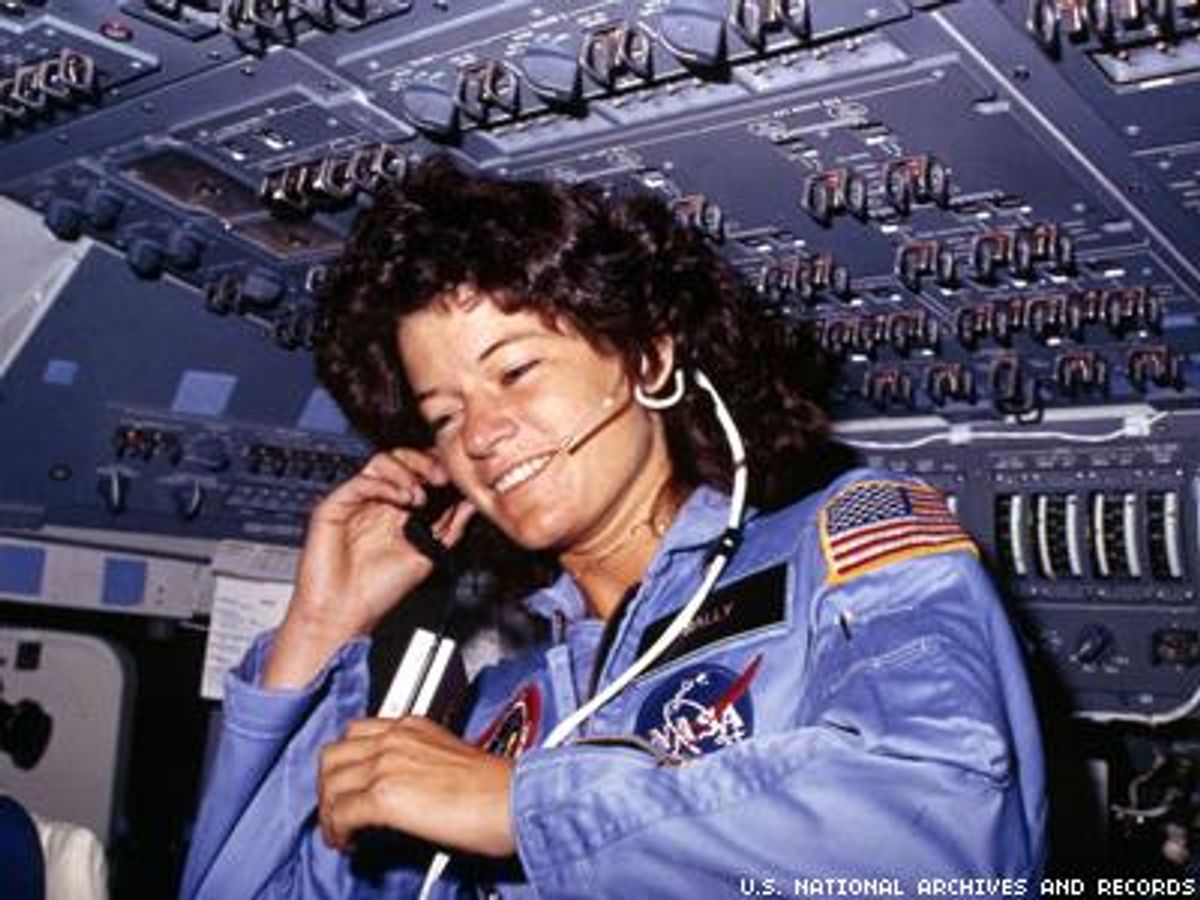
The first American woman (and possibly the first LGBT person) in space will receive a posthumous honor from the president this week.
November 19 2013 7:00 AM EST
November 17 2015 5:28 AM EST
By continuing to use our site, you agree to our Private Policy and Terms of Use.

The late astronaut and astrophysicist Sally Ride will receive a posthumous Presidential Medal of Freedom this week for her work not only for NASA as the first American woman in space, but also for encouraging countless people to engage in the sciences. It was only after her death from pancreatic cancer in 2012 that most people learned that Ride had a partner of 27 years, Tam O'Shaughnessy, with whom she also collaborated on books and her company, Sally Ride Science. We take a look back at Ride's life, her accomplishments, and how she changed what it means to be a scientist.
1. Sally Ride began to excel in math and science at the prestigious Westlake School for Girls in Los Angeles. "It was probably very important to my future. I didn't have a lot of confidence in myself," she told USA Today in 2006. "I did well in math in high school, but I didn't know if I would be able to do well at math in college. At Westlake, it was all girls in the trigonometry, calculus and chemistry classes. That environment gave me the confidence and motivation to declare a physics major in college. Who knows if I had gone to public high school? It affected a lot of my friends. Others made it and became doctors, so it's hard to say." The subject she liked the least? Home economics, back when it was required for girls. "Can you imagine having to cook and eat tuna casserole at 8 a.m.?"
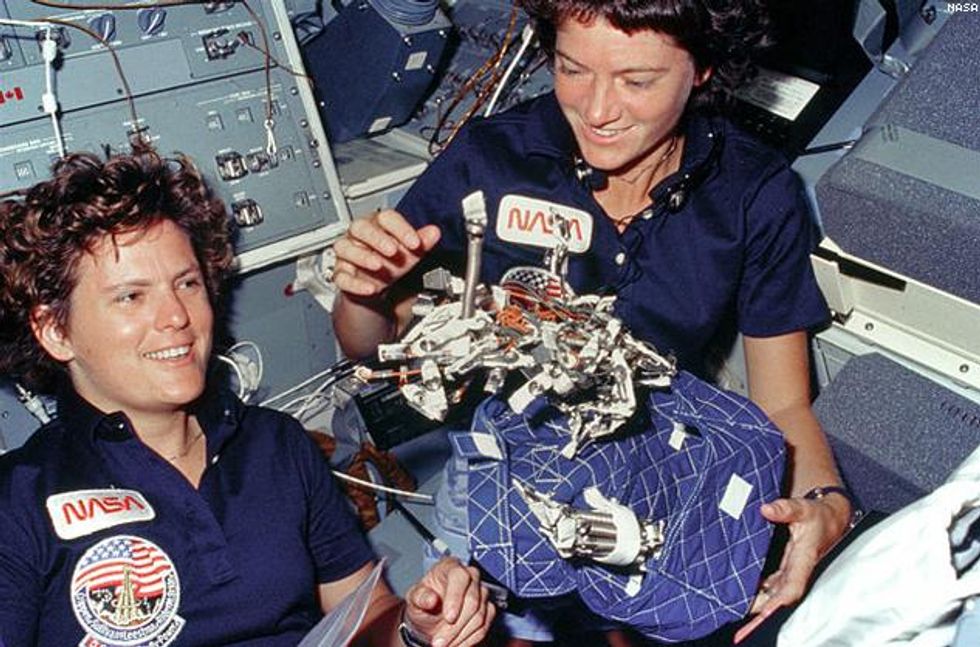
2. Ride answered an ad in the newspaper to join NASA. Yeah. It was that simple. She was finishing up her Ph.D. in physics at Stanford when the agency put out an ad looking for astronaut candidates. Ride was one of 8,000 applicants for the training program. Thirty-five people (including six women) were accepted into the astronaut corps, and Ride was selected as an astronaut candidate in 1978. "It was always comforting that there were six of us women, not two," she told the Harvard Business Journal weeks before her death. "It made it clear that NASA was committed to really bringing more gender diversity into the astronaut corps."
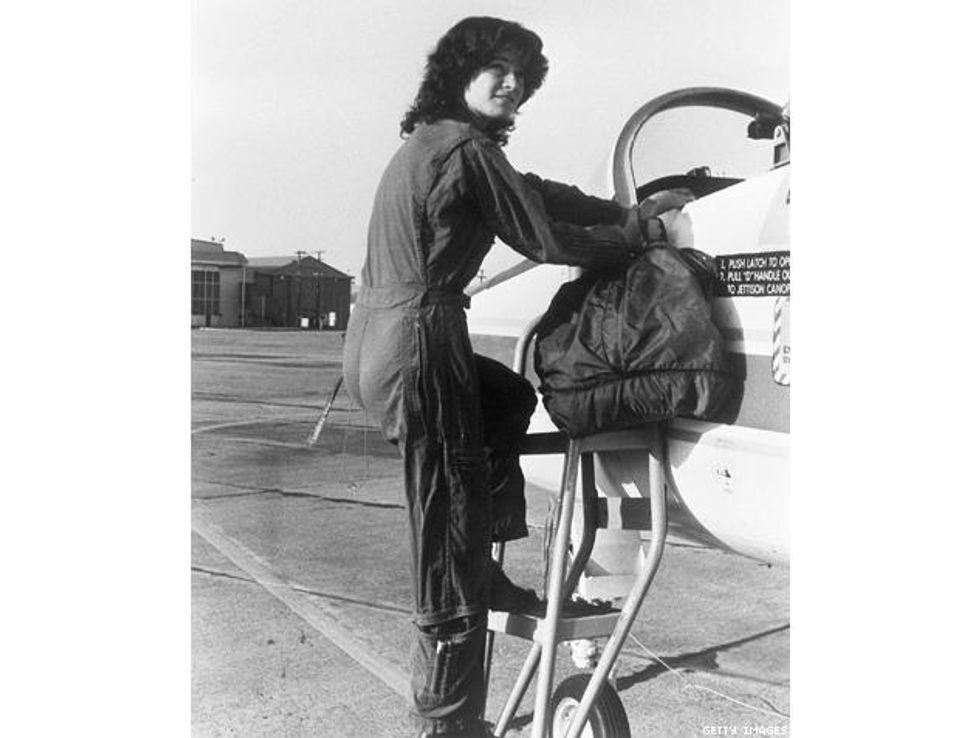
3. Ride was not only the first American woman in space, but at 32, she was also the youngest person to leave the earth's atmosphere when she took off on the space shuttle Challenger June 18, 1983.
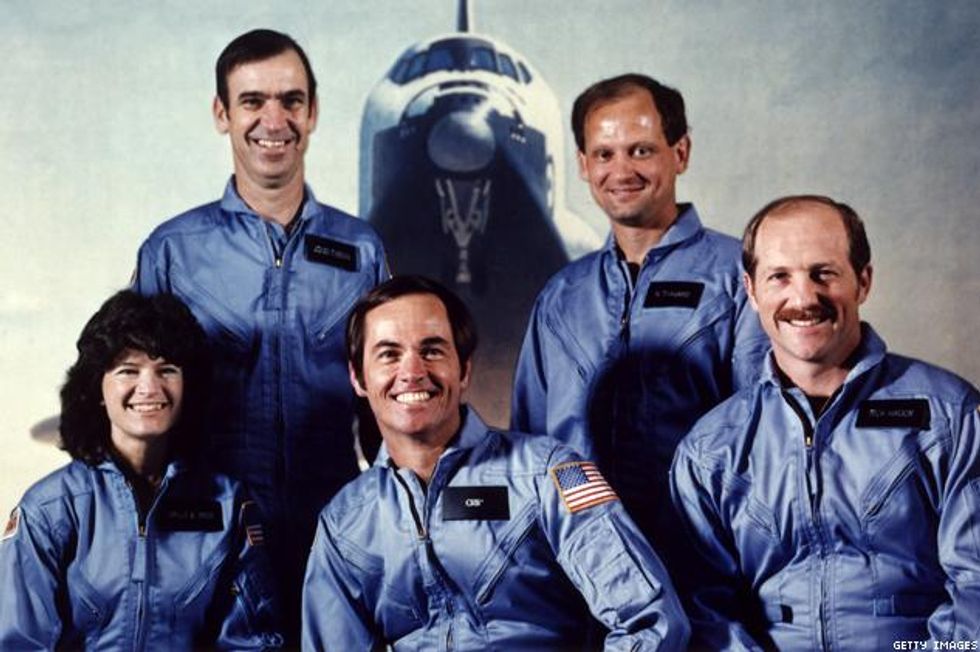
4. During her first mission in space, which lasted 147 hours, Ride was part of a crew that launched satellites for Canada and operated a mechanical arm to perform several groundbreaking exercises. She also wore a patch with a female symbol on her uniform and carried the banners from her prep school and her college, according to The Daily Beast. During her second mission, which lasted eight days, Ride was part of the largest crew to fly into space.
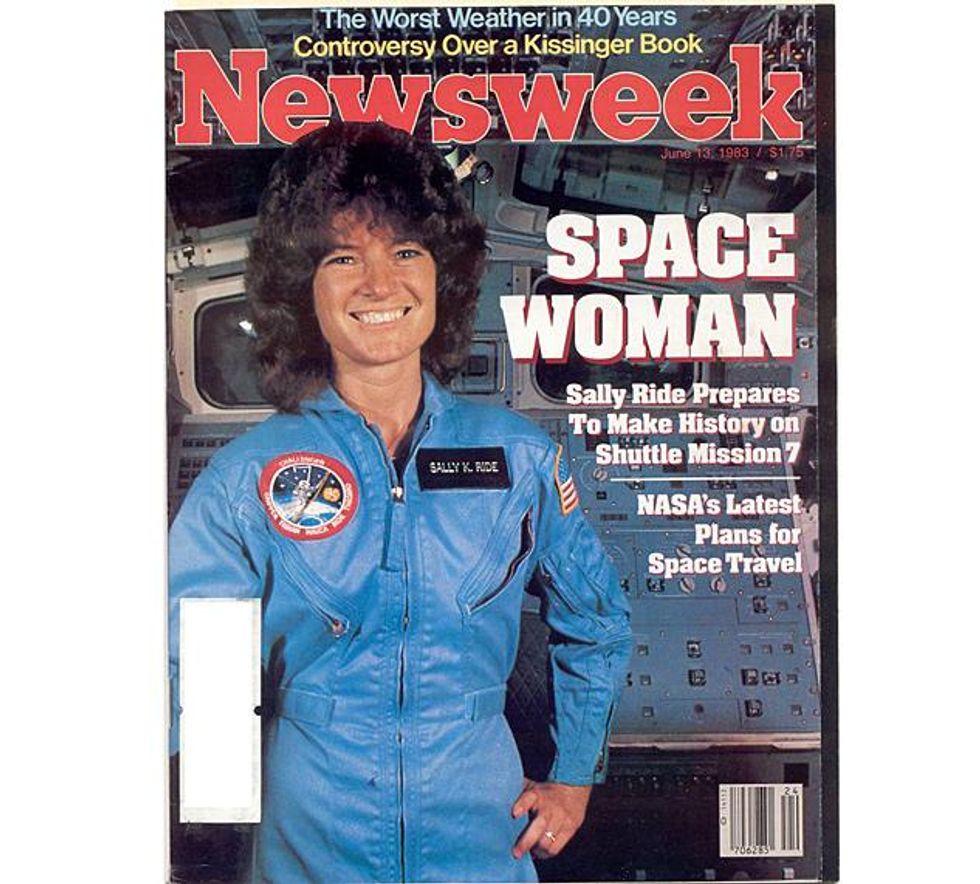
5. The crash site of two satellites that were orbiting the moon was named after Ride last December. The two gravity-mapping Grail probes, known as Ebb and Flow, slammed into a crater near the moon's north pole. It sounds like a weird way to memorialize someone, but Ride made vast contributions to the Grail mission, including Grail's MoonKAM project, which allowed schoolchildren around the world to select sites for the satellites to photograph.
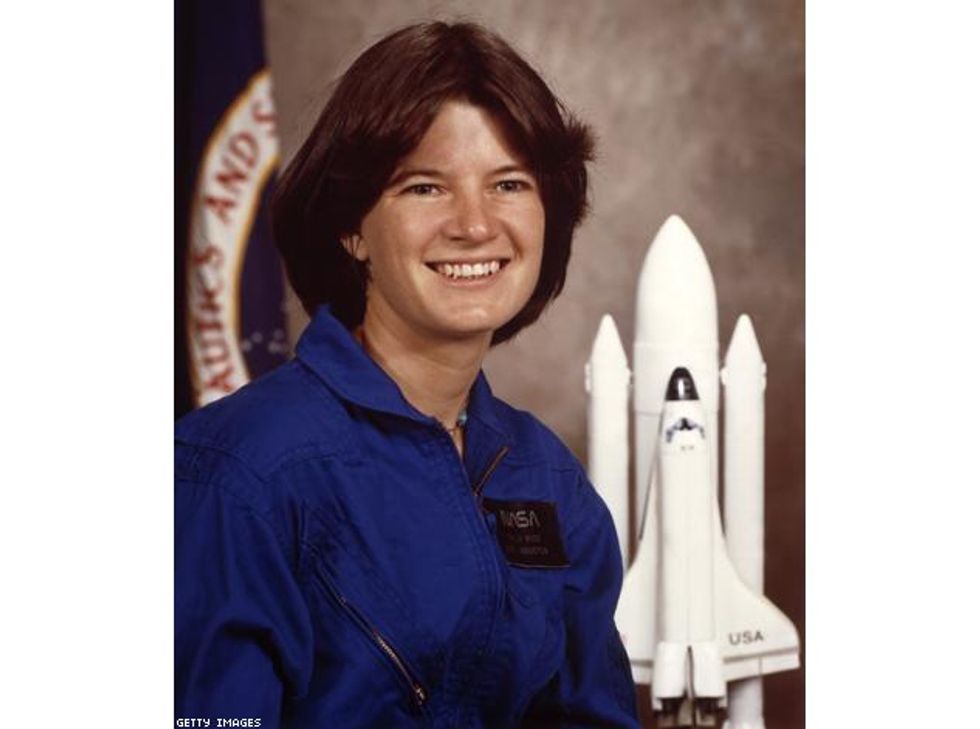
6. Ride was intensely private about her life outside of work, which was why very few people knew that she had been dealing with pancreatic cancer for 17 months. It's also why her sexual orientation was not well known. According to a 2003 interview in TheNew York Times, Ride said that she had in fact turned down multiple opportunities to tell her life story. Her sister, Bear Ride, later explained, "Sally didn't use labels. Sally had a very fundamental sense of privacy, it was just her nature, because we're Norwegians, through and through."
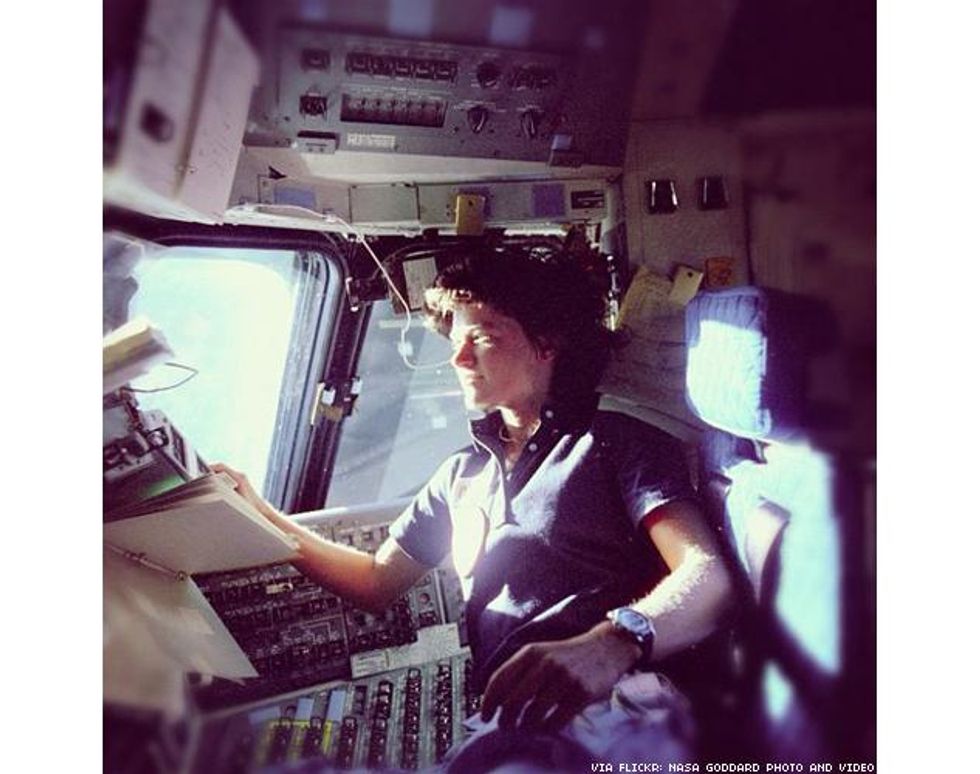
7. Ride met her partner, Tam O'Shaughnessy, when they were playing tennis at age 12. Ride was pretty good -- she competed in national tournaments and won a scholarship to Westlake. O'Shaughnessy became a professional tennis player, then went on to earn degrees in biology and psychology, and became a science teacher. She worked with Ride on six books -- Voyager, The Third Planet, The Mystery of Mars, Exploring Our Solar System, Mission Planet Earth, and Mission Save the Planet.
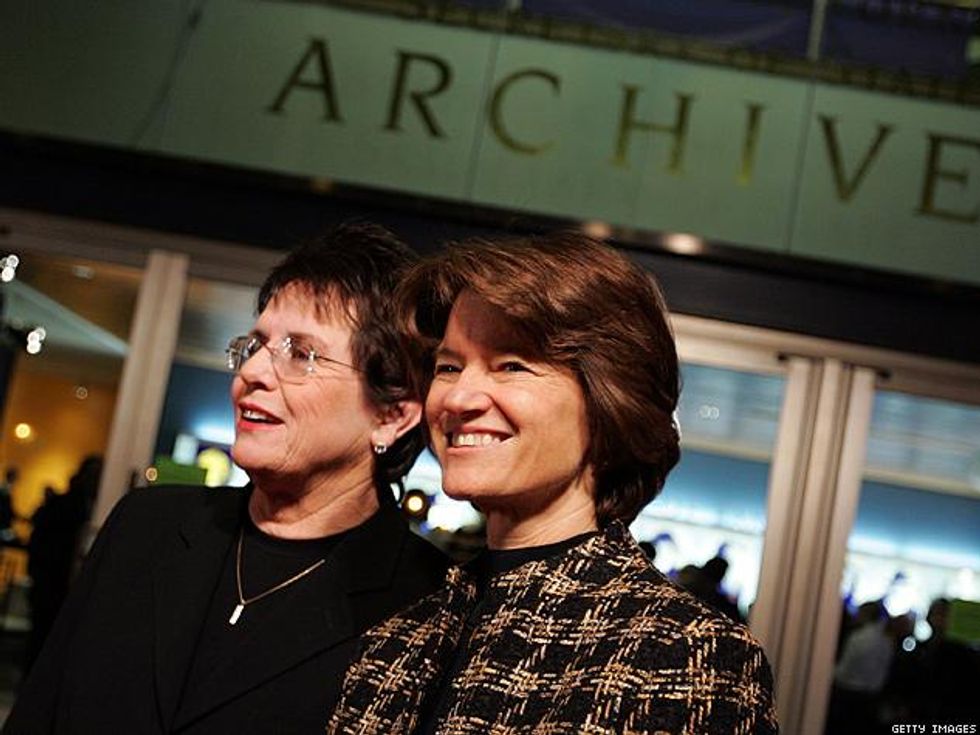
8. When she wasn't floating in space during her time at NASA, she was pegged to the ground handling communications with shuttle crews from mission control for the STS-2 and STS-3 missions.
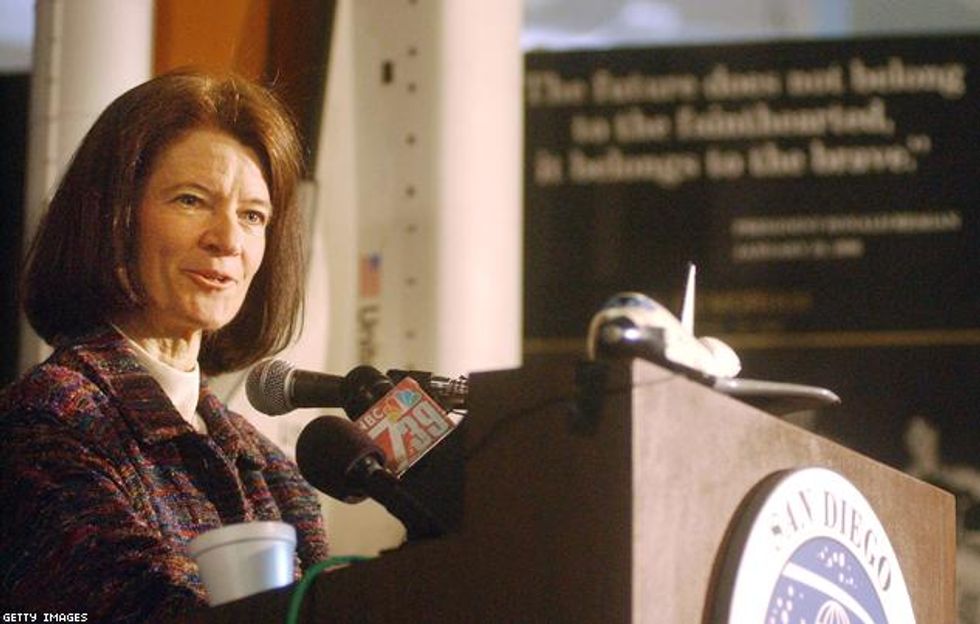
9. After Ride retired from NASA, she joined the faculty of the University of California, San Diego, as a professor of physics and director of the California Space Institute. Then in 2001, she started Sally Ride Science to help motivate young people, especially girls, to pursue science, math, and technology.
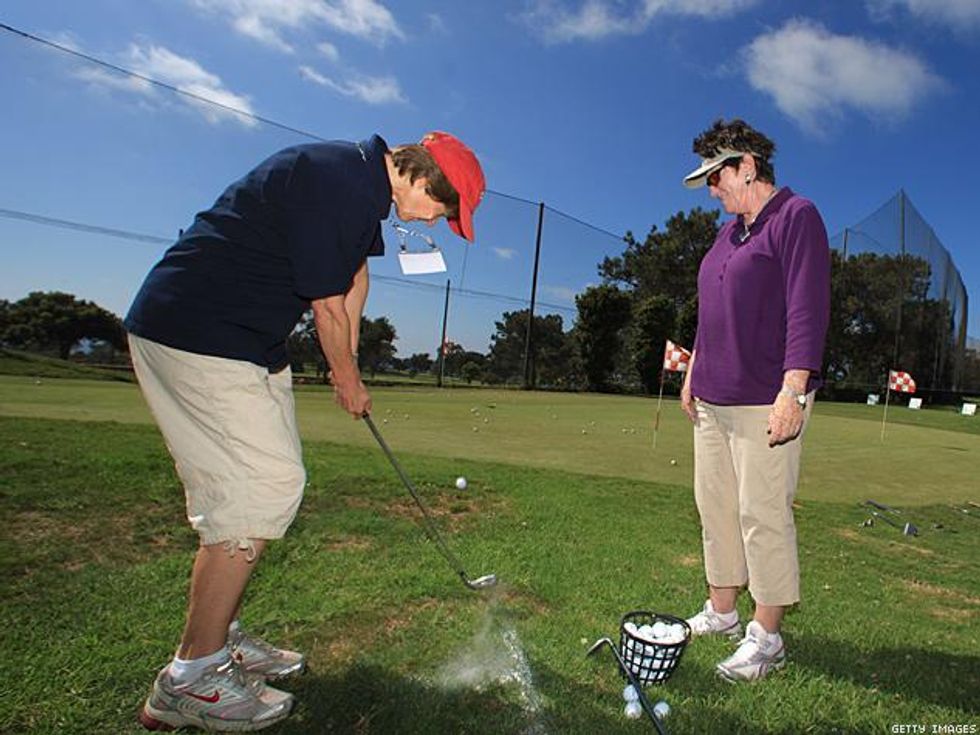
10. Ride said she didn't go into the sciences to become a role model but eventually realized that she was one for countless women around the world. "Young girls need to see role models in whatever careers they may choose, just so they can picture themselves doing those jobs someday," she told the Harvard Business Review. "You can't be what you can't see."
Editor's note: an earlier version of this story cited Ride as the first woman in space, where in fact she was the first American woman in space.
Want more breaking equality news & trending entertainment stories?
Check out our NEW 24/7 streaming service: the Advocate Channel!
Download the Advocate Channel App for your mobile phone and your favorite streaming device!